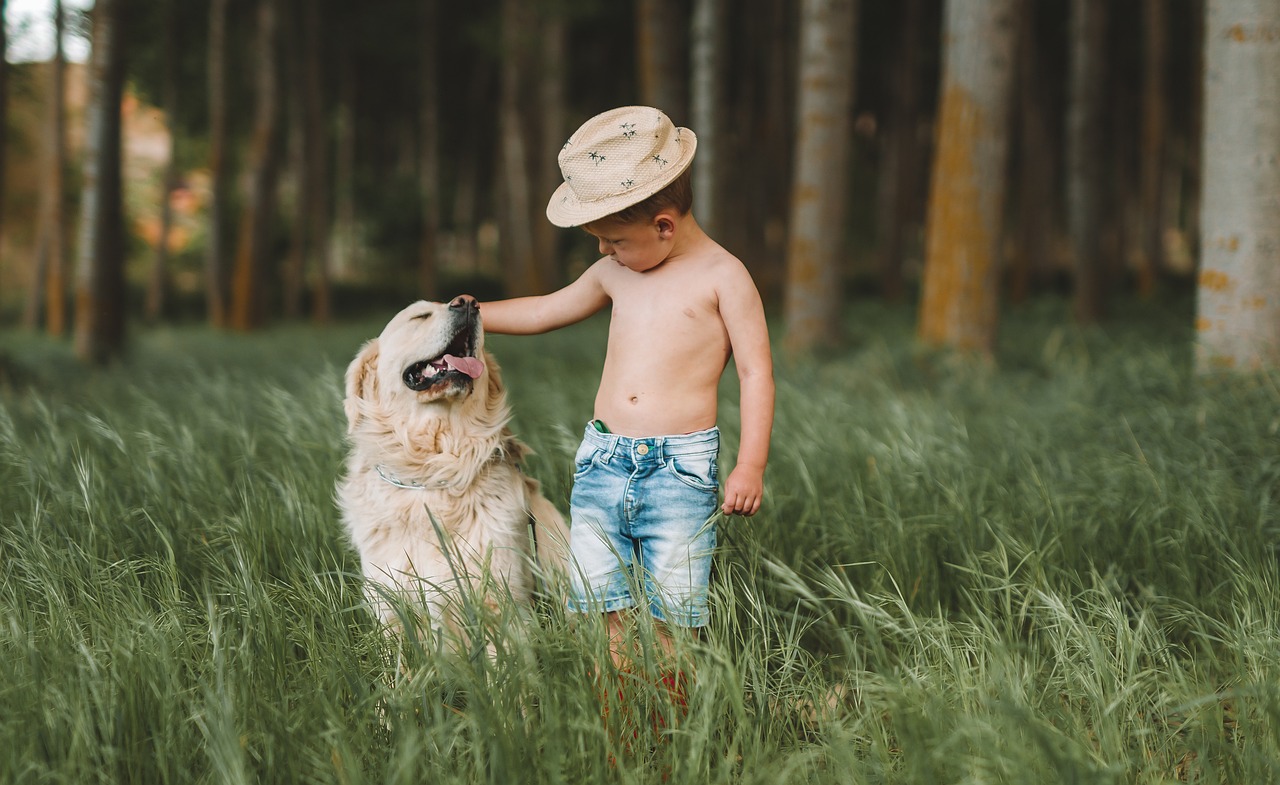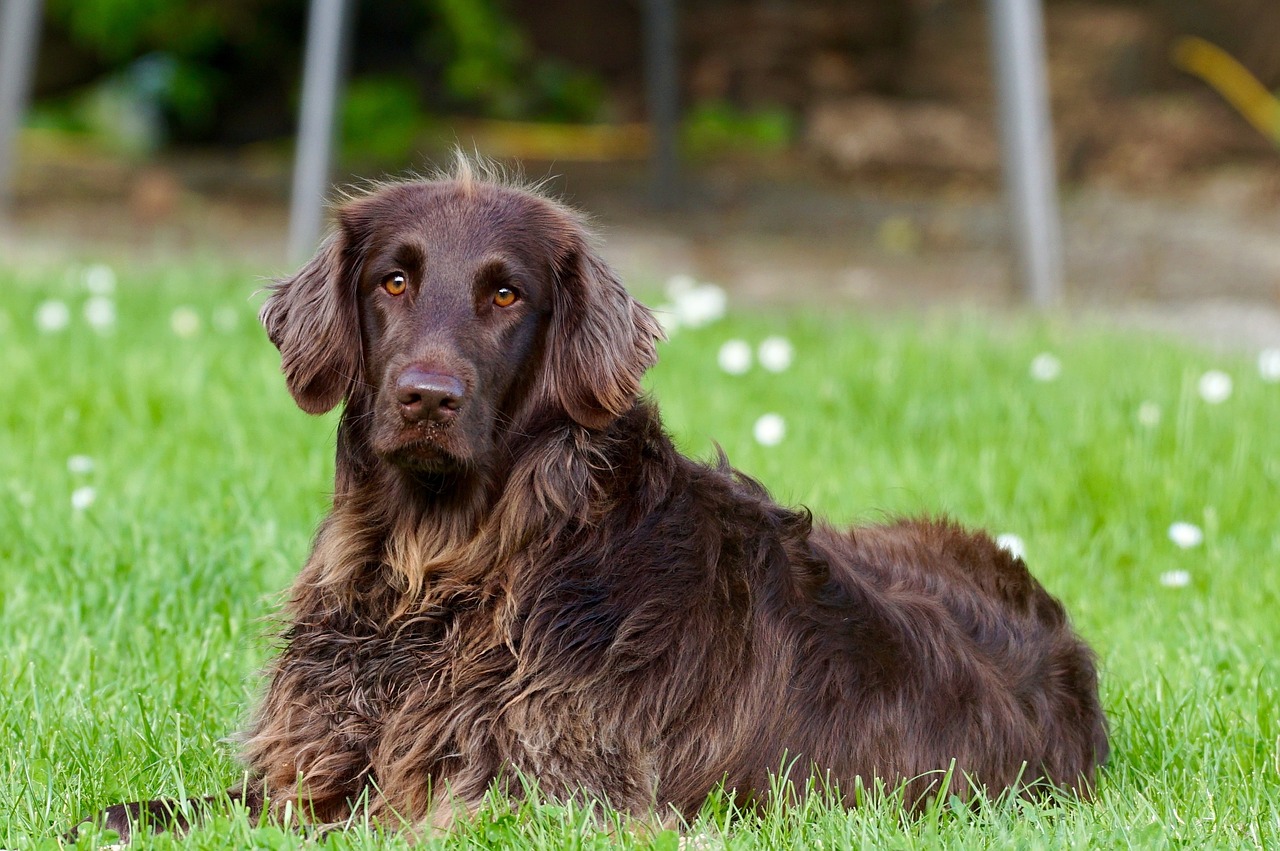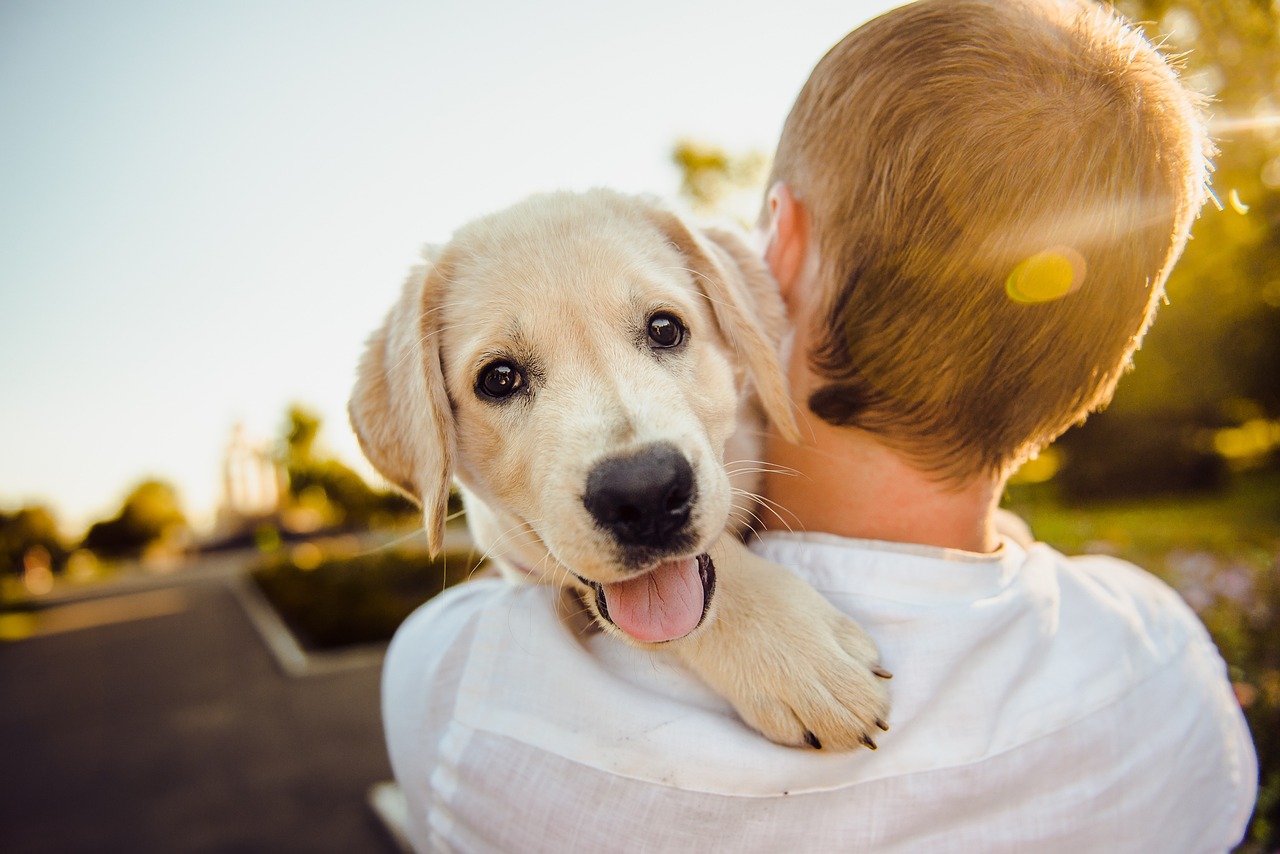The Friendly Nature of Boxers
Boxer dogs are not just pets; they are family members, friends, and loyal companions rolled into one. Known for their affectionate and sociable temperament, Boxers have a unique ability to form strong bonds with their human families and even other pets. Imagine coming home after a long day, only to be greeted by a wagging tail and a joyful leap from your furry friend. That’s the magic of Boxers! Their playful nature and boundless energy make them a perfect fit for families, especially those with children. But what exactly makes these dogs so friendly and beloved? Let’s dive deeper into the wonderful world of Boxers.
Boxers are renowned for their playful and energetic nature. This breed is characterized by a zest for life that is simply contagious. Their inherent traits include a combination of intelligence, curiosity, and a genuine love for human interaction. It’s not uncommon to see a Boxer bounding around the yard, their tail wagging furiously as they invite you to join in the fun. This playful demeanor contributes significantly to their friendly nature, making them excellent companions for both adults and children. Whether they are chasing after a ball or playfully wrestling with their human, Boxers thrive on social interaction, which is a key aspect of their personality.
When it comes to family life, Boxers truly shine. They are known for forming strong bonds with their families, particularly with children. Their protective instincts combined with their gentle behavior make them ideal family pets. Boxers have an innate ability to sense when their loved ones need comfort or protection, which can create a warm and nurturing atmosphere in the home. Imagine a child playing in the yard, and a Boxer is right there, keeping a watchful eye. This loyalty and affection not only provide a sense of security but also foster a loving environment.
Boxers are naturally playful and patient, which makes them great companions for kids. They possess a unique ability to engage with children in a way that is both fun and safe. Their playful antics can turn an ordinary afternoon into a delightful adventure. For instance, Boxers often enjoy games of fetch or tug-of-war, making them perfect playmates. This interaction not only entertains the children but also helps in teaching them important lessons about empathy and responsibility. Having a Boxer around can promote a nurturing atmosphere that encourages kids to be active and social.
The high energy levels of Boxers encourage active play, which is essential for a healthy relationship with children. Regular playtime is not just a fun activity; it’s a vital part of their well-being. Boxers thrive on physical activity, and engaging them in games can help channel their energy positively. A tired Boxer is a happy Boxer! It’s important for families to set aside time for play, whether it’s a game of chase in the backyard or a visit to the local dog park. This not only strengthens the bond between Boxers and their human companions but also promotes a healthy lifestyle for everyone involved.
Boxers are known for their protective instincts, which can create a sense of security for families. They have a natural instinct to guard their home and loved ones, making them excellent watchdogs. However, this protective nature does not come at the cost of their friendliness. Boxers can be both alert and affectionate, ensuring that their family feels safe without being overly aggressive. It’s this balance of protection and love that makes Boxers such a cherished addition to any household.
While Boxers are generally friendly with other pets, early socialization is key to ensuring harmonious relationships. Introducing a Boxer to other animals at a young age can help them develop a friendly demeanor towards them. Proper socialization involves gradual introductions, allowing the Boxer to become familiar with other pets in a controlled environment. This process can involve supervised playdates or visits to pet-friendly parks. With the right approach, Boxers can coexist happily with other pets, turning your home into a loving, bustling family unit.
Training is essential for fostering a friendly demeanor in Boxers. A well-trained Boxer is not only a joy to be around but also a responsible member of the family. Effective training methods can enhance their sociability and obedience, making them even more delightful companions. Training should begin early, focusing on basic commands and socialization skills. This foundation will help ensure that Boxers grow into well-behaved adults.
Using positive reinforcement techniques is one of the most effective ways to train Boxers. Rewarding good behavior with treats, praise, or playtime helps them learn commands and socialize better. This method encourages Boxers to repeat desired behaviors, fostering a friendly attitude. Imagine your Boxer sitting patiently for a treat; that moment of triumph not only reinforces their training but also strengthens the bond between you and your furry friend.
Consistency is crucial in training Boxers. A structured training routine can reinforce their friendly nature and improve behavior over time. When everyone in the household is on the same page regarding training commands and expectations, Boxers can thrive. It’s like teaching a child; regular practice and a supportive environment lead to success. By maintaining a consistent approach, you can help your Boxer become the friendly and well-mannered companion you desire.
- Are Boxers good with children?
Yes, Boxers are known for their playful and gentle nature, making them excellent companions for kids. - Do Boxers require a lot of exercise?
Absolutely! Boxers are energetic dogs that thrive on regular physical activity to stay healthy and happy. - How can I socialize my Boxer with other pets?
Start early by gradually introducing them to other animals in a controlled environment, ensuring positive experiences. - What training methods work best for Boxers?
Positive reinforcement is highly effective, as it encourages good behavior through rewards and praise.

Understanding the Boxer Temperament
Boxers are a breed that exudes energy and enthusiasm, making them one of the most affectionate and sociable dog breeds around. Their playful spirit is not just a trait; it’s a way of life. Imagine a dog that greets every day with excitement, ready to dive into whatever adventures await. This inherent playfulness is coupled with a natural curiosity about the world, making Boxers incredibly engaging companions.
One of the most remarkable aspects of Boxers is their friendly demeanor. They tend to be very outgoing and love meeting new people. Whether it’s a stranger at the park or a friend visiting the home, Boxers are likely to approach with a wagging tail and a playful nudge. This sociability extends beyond humans; Boxers often get along well with other pets, provided they’re introduced properly. Their friendly nature is not just limited to their own family; they can be quite the social butterflies!
When discussing the Boxer temperament, it's essential to highlight their loyalty and protectiveness. Boxers are known to form deep bonds with their families, often becoming the guardians of the household. They possess a natural instinct to protect their loved ones, which can be comforting for families. However, this protective nature is balanced with their friendly disposition, ensuring that they are both watchful and welcoming. It’s as if they wear two hats: one as a playful friend and the other as a vigilant guardian.
Another key characteristic of Boxers is their intelligence. They are quick learners and thrive on mental stimulation. This intelligence can sometimes lead to a bit of mischief, as they can easily figure out how to open doors or get into cupboards. However, this cleverness can be harnessed through training, allowing them to channel their energy and intelligence positively. Engaging their minds not only keeps them happy but also strengthens the bond between the dog and its owner.
In summary, the temperament of Boxers is a delightful blend of playfulness, affection, and loyalty. They are not just pets; they are family members who bring joy and energy into the home. Understanding these traits is crucial for anyone considering adding a Boxer to their family, as it helps to appreciate the unique personality that each dog brings. With the right environment and socialization, Boxers can thrive and become the beloved companions they are known to be.

Boxers and Family Life
When it comes to choosing a family pet, Boxers stand out as one of the most affectionate and loyal breeds available. Their friendly nature makes them a perfect addition to any household, creating an atmosphere filled with love and joy. Boxers thrive on human interaction and are known for their ability to bond closely with their families. They are not just pets; they become integral members of the family, sharing in both the fun and the responsibilities that come with family life.
One of the most remarkable traits of Boxers is their protective instincts. They have a natural tendency to watch over their loved ones, which is particularly comforting for families with children. Imagine having a playful companion who is not only eager to join in on games but also keeps a vigilant eye on the little ones. This dual role of playmate and protector gives parents peace of mind, knowing their kids are in safe paws.
Boxers are also incredibly gentle, especially with children. Their playful demeanor encourages a nurturing environment where kids can learn about responsibility and empathy. The way Boxers interact with children can be likened to a big brother or sister who is always ready to play but also knows when to step in and keep things safe. This unique blend of playfulness and protectiveness makes Boxers an ideal choice for families of all sizes.
Moreover, the energy levels of Boxers are something to behold. They are always up for a game of fetch or a romp in the backyard, which can lead to some unforgettable family moments. Regular playtime is not just beneficial for the dog; it also fosters stronger bonds among family members. Whether it’s a game of tug-of-war or a spirited chase around the yard, these activities help create lasting memories that everyone will cherish.
It's essential to remember that, like any dog, Boxers thrive on routine and structure. Establishing a consistent schedule for feeding, exercise, and playtime helps them feel secure and happy. This structure not only contributes to their overall well-being but also reinforces their friendly nature. When Boxers know what to expect, they are more relaxed and can focus on being the loving companions they are meant to be.
In conclusion, Boxers are more than just pets; they are loyal family members who bring joy, protection, and a lot of energy into the home. Their playful spirit combined with their gentle nature makes them an excellent choice for families looking to add a furry friend to their lives. So, if you're considering bringing a Boxer into your family, prepare for a whirlwind of love, laughter, and unforgettable moments!
- Are Boxers good with children? Yes, Boxers are known for their gentle and playful nature, making them excellent companions for children.
- Do Boxers require a lot of exercise? Absolutely! Boxers are energetic dogs that need regular exercise to stay healthy and happy.
- How can I ensure my Boxer is well-socialized? Early socialization with various people and pets is crucial. Regular playdates and obedience classes can help.
- Are Boxers protective of their families? Yes, Boxers have a natural instinct to protect their loved ones while remaining friendly and affectionate.
Interaction with Children
Boxers and children are often a match made in heaven. Their playful nature and boundless energy make them ideal companions for kids. Imagine a furry friend who is always ready to join in a game of tag or a spirited round of fetch! Boxers thrive on interaction and love to be part of the family activities, which makes them a perfect fit for households with children. Their natural inclination to play and engage creates an atmosphere of joy and laughter, making family time even more special.
One of the most remarkable traits of Boxers is their patience. They understand that children can be a bit unpredictable and rambunctious. Instead of reacting negatively, Boxers often display a gentle demeanor, allowing kids to climb, hug, and even dress them up in silly costumes. This tolerance is not just a coincidence; it’s part of their genetic makeup. Boxers are known for their nurturing spirit, which helps them form strong bonds with the little ones in the family. This bond often leads to a lifelong friendship that both the dog and child cherish.
However, it’s crucial to teach children how to interact with Boxers respectfully. Just like any relationship, understanding and communication are key. Parents should encourage kids to approach Boxers calmly and to respect their space when needed. This helps foster an environment where both the child and the dog feel safe and loved. Here are some tips for ensuring a harmonious relationship:
- Always supervise interactions between Boxers and young children.
- Teach children to approach the dog gently and to avoid sudden movements.
- Encourage kids to play fetch or tug-of-war games, which Boxers love!
- Remind children to give the dog a break when they seem tired.
In addition to their playful nature, Boxers also have a strong protective instinct. They are naturally inclined to guard their family, which can be an added layer of security for parents. This protective nature doesn’t mean they are aggressive; rather, it enhances their friendly demeanor. Boxers often act as vigilant guardians, ensuring that their little companions are safe while also being playful and loving. This unique combination of traits makes Boxers not just pets but also loyal family members who watch over their loved ones.
In conclusion, the interaction between Boxers and children is a beautiful sight to behold. Their affectionate nature, combined with their playful energy and protective instincts, creates a nurturing environment where both can thrive. With a little guidance and supervision, Boxers can become not just pets, but beloved family members who enrich the lives of children and parents alike.
Q: Are Boxers good with young children?
A: Yes, Boxers are generally very good with young children due to their playful and patient nature.
Q: How should I introduce my Boxer to my child?
A: It's best to supervise the introduction closely and teach your child how to approach the dog gently and respectfully.
Q: Can Boxers be left alone with children?
A: While Boxers are protective and friendly, it's always best to supervise interactions between Boxers and young children.
Playfulness and Energy
When it comes to Boxers, their name could very well be synonymous with playfulness and energy. These dogs are like a bundle of joy wrapped in fur, constantly ready to engage in fun activities and adventures. Their exuberance is not just a trait; it’s a lifestyle! If you’ve ever watched a Boxer in action, you know they have an uncanny ability to turn any mundane moment into a lively game. Whether it’s chasing after a ball, playing tug-of-war, or performing silly antics to get your attention, Boxers are always in the mood for some serious fun.
But why is this playfulness so important? Well, it’s not just about having a good time; it’s about fostering a strong bond between Boxers and their human families. Regular playtime is essential for a Boxer’s physical and mental health. Just like us, they need an outlet for their energy to stay happy and healthy. Without sufficient exercise, a Boxer can become bored or even develop behavioral issues. Think of it this way: a tired Boxer is a happy Boxer! So, how do you ensure your Boxer gets the playtime they need?
Engaging in daily activities can include:
- Long walks or runs
- Interactive games like fetch or frisbee
- Agility training to stimulate their minds
- Playdates with other dogs to enhance social skills
Incorporating these activities into your routine not only keeps your Boxer physically fit but also strengthens your relationship. The joy you see in their eyes as they sprint across the yard or leap into the air to catch a toy is truly infectious. Plus, this shared playtime creates lasting memories and deepens your connection.
Furthermore, the energy of a Boxer can be a great motivator for families to stay active together. Imagine weekends filled with outdoor adventures, hikes, and trips to the dog park. It’s a win-win situation: your Boxer gets to burn off that excess energy, and your family enjoys the benefits of an active lifestyle. So, if you’re looking for a furry friend that will keep you on your toes and encourage you to enjoy the great outdoors, a Boxer is a fantastic choice!
In summary, the playfulness and energy of Boxers are not just delightful quirks; they are essential components of their nature that contribute to their overall well-being and the happiness of their families. By embracing their spirited personalities and engaging in regular play, you’ll find that your Boxer not only thrives but also fills your home with laughter and joy.
Q: How much exercise does a Boxer need daily?
A: Boxers typically require at least 1 to 2 hours of exercise each day to keep them happy and healthy.
Q: Can Boxers play well with children?
A: Yes, Boxers are known for their gentle and playful nature, making them great companions for children.
Q: What are some good games to play with a Boxer?
A: Boxers enjoy games like fetch, tug-of-war, and agility training, which help them expend energy and stimulate their minds.
Q: How can I ensure my Boxer is well-socialized?
A: Early socialization with other pets and people, along with positive reinforcement training, can help your Boxer develop friendly behavior.
Protective Instincts
Boxers are not just playful companions; they are also known for their that make them excellent guardians for families. This breed possesses a natural ability to sense danger and react accordingly, which can be a comforting trait for families with children. Imagine having a loyal friend who not only loves to play but also keeps a watchful eye on your little ones. That’s the essence of a Boxer! Their protective nature is not about aggression; rather, it’s a deep-seated instinct to ensure the safety of their loved ones.
When it comes to family dynamics, Boxers are incredibly attuned to the emotional states of their human companions. They can easily identify when someone is feeling down or anxious, and they often respond with affection and loyalty. This ability to sense emotions enhances their protective instincts, as they become more vigilant when they perceive potential threats to their family's well-being. It's as if they have an innate radar for detecting discomfort, which makes them not only protectors but also emotional support companions.
However, it’s essential to note that their protective nature must be balanced with proper training and socialization. Without these, a Boxer may become overly protective, which could lead to unnecessary barking or even aggression towards strangers. Early exposure to various environments, people, and pets is crucial in shaping a well-adjusted Boxer. A well-socialized Boxer will understand the difference between a friend and a foe, allowing them to express their protective instincts in a healthy manner.
To help you understand the balance between a Boxer’s protective instincts and their friendly demeanor, here’s a quick overview:
| Trait | Explanation |
|---|---|
| Alertness | Boxers are naturally alert and will notify their families of any unusual activity. |
| Loyalty | They form strong bonds with their families, making them fiercely loyal. |
| Gentle Nature | Despite their protective instincts, Boxers are gentle and patient, especially with children. |
| Training Needs | Consistent training is required to ensure that their protective instincts are well-managed. |
In conclusion, Boxers exemplify a unique blend of playfulness and protection. Their instincts to guard their family while maintaining a friendly demeanor make them ideal companions. With the right training and socialization, these dogs will not only protect your home but also fill it with joy and laughter. So, if you’re considering adding a Boxer to your family, rest assured that you’re welcoming a furry friend who will be both a playful buddy and a steadfast guardian!
- Are Boxers good with children? Yes, Boxers are known for their playful and gentle nature, making them excellent companions for kids.
- Do Boxers require a lot of exercise? Absolutely! Boxers are energetic dogs that thrive on regular physical activity.
- How can I ensure my Boxer is well-socialized? Early exposure to different environments, people, and pets is key to proper socialization.
- Are Boxers protective of their families? Yes, Boxers have a natural protective instinct and will guard their loved ones.
Socialization with Other Pets
When it comes to socialization, Boxers are generally known for their friendly and amiable nature. However, just like any other breed, they require some guidance and training to ensure they can coexist peacefully with other pets. Early socialization is crucial; it’s like laying the foundation of a house—without a solid base, everything else can crumble. Introducing your Boxer to different animals at a young age will help them develop positive associations and reduce the likelihood of aggressive behavior later on.
One effective way to socialize your Boxer is to expose them to various environments and animals. This could include taking them to parks where they can encounter other dogs, or inviting friends over who have pets. It’s essential to supervise these interactions, especially at first, to ensure that everyone feels comfortable. Think of it as a first date—everyone is a bit nervous, and you want to make sure the atmosphere is relaxed and friendly.
Here are some key points to consider when socializing your Boxer with other pets:
- Start Early: Ideally, socialization should begin when your Boxer is a puppy. The critical period for socialization is between 3 and 14 weeks of age.
- Positive Experiences: Ensure that every interaction is a positive one. Use treats and praise to reward your Boxer for good behavior during these encounters.
- Controlled Introductions: When introducing your Boxer to a new pet, do it in a controlled environment. Keep both animals on a leash at first to manage the situation.
- Observe Body Language: Pay attention to the body language of both pets. Signs of stress or aggression should be addressed immediately to prevent any negative experiences.
It's important to remember that not all pets will get along perfectly, and that’s okay! Some animals may take longer to warm up to each other. Be patient and allow your Boxer to set the pace. If you notice any signs of aggression or fear, it may be necessary to seek the help of a professional trainer. Think of it as a dance; sometimes you lead, and sometimes you follow, but the goal is to move in harmony.
In summary, socialization with other pets is vital for a Boxer’s well-being. By introducing them to various animals and environments early on, using positive reinforcement, and being patient, you can help your Boxer become a well-adjusted and sociable member of your family. Remember, the more experiences your Boxer has, the better equipped they will be to handle the world around them!
Q: Can Boxers get along with cats?
A: Yes, Boxers can get along with cats, especially if they are socialized together from a young age. However, supervision is essential to ensure both pets feel safe.
Q: How can I tell if my Boxer is anxious around other pets?
A: Signs of anxiety in Boxers can include excessive barking, growling, or trying to escape the situation. If you notice these behaviors, it may be best to remove your Boxer from the environment and try again later.
Q: What if my Boxer shows aggression towards other dogs?
A: If aggression occurs, it’s crucial to stop the interaction immediately. Consult a professional dog trainer who can help you address the behavior and create a plan for safe socialization.

Training and Obedience
Training a Boxer is not just about teaching commands; it's about fostering a strong bond between you and your furry friend. Boxers are intelligent, eager to please, and possess a natural curiosity that makes training an exciting adventure. However, it’s crucial to understand that their playful and energetic nature can sometimes lead to distractions. Therefore, a well-structured training routine is essential for harnessing their potential and ensuring they grow into well-mannered companions.
One of the most effective methods for training Boxers is through positive reinforcement. This technique focuses on rewarding desirable behavior, which not only motivates your Boxer but also enhances their willingness to learn. Imagine your Boxer sitting patiently while you prepare their favorite treat. The moment they follow your command, shower them with praise and a tasty reward. This creates a positive association with the command, making them more likely to repeat the behavior in the future. It's a win-win situation!
Consistency is another key element in training Boxers. They thrive on routine, and having a structured training schedule helps reinforce their learning. For instance, if you practice commands like "sit," "stay," and "come" at the same time each day, your Boxer will begin to anticipate these sessions and engage more eagerly. It’s like setting a date with your best friend—when you keep showing up, the bond strengthens. In fact, establishing a consistent training environment allows your Boxer to feel secure, knowing what to expect and when to expect it.
Additionally, socialization plays a vital role in a Boxer's training. Exposing them to various environments, people, and other animals helps them develop a friendly demeanor. Early socialization can prevent behavioral issues and ensure that they interact positively with others. Think of it as giving your Boxer a passport to the world! The more experiences they have, the more adaptable and friendly they become.
To further illustrate the importance of training and obedience, here’s a simple table that summarizes the key training aspects for Boxers:
| Training Aspect | Description |
|---|---|
| Positive Reinforcement | Rewarding good behavior to encourage repetition. |
| Consistency | Establishing a regular training schedule for better learning. |
| Socialization | Introducing your Boxer to various environments and other pets. |
In conclusion, training a Boxer is a rewarding journey that requires patience, consistency, and a touch of creativity. When you invest time in their training, you’re not just teaching them commands; you’re building a lifelong friendship that is filled with love, loyalty, and, of course, a whole lot of fun!
- How long does it take to train a Boxer? Training can vary depending on the individual dog, but with consistency and positive reinforcement, you can see significant progress within a few weeks.
- Are Boxers easy to train? Yes, Boxers are intelligent and eager to please, which generally makes them receptive to training.
- What age should I start training my Boxer? It’s best to start training as early as possible, ideally when they are a puppy, to establish good habits and socialization.
- Can Boxers be trained to get along with other pets? Absolutely! Early and positive socialization is key to helping Boxers interact well with other animals.
Positive Reinforcement Techniques
When it comes to training Boxers, are not just effective; they are essential. These techniques focus on rewarding desirable behaviors rather than punishing unwanted ones, creating a more enjoyable and productive training experience for both the dog and the owner. Imagine teaching your Boxer to sit or stay by offering them a tasty treat or a favorite toy every time they get it right. This approach not only encourages them to repeat the behavior but also strengthens the bond between you and your furry friend. After all, who wouldn't want to see their dog wagging its tail in excitement for a reward?
One of the most important aspects of positive reinforcement is timing. When your Boxer performs a desired behavior, it's crucial to reward them immediately. This helps them associate the action with the reward. For instance, if your Boxer sits on command, give them a treat right away. This instant gratification is like a light bulb moment for them; they learn quickly that sitting equals a tasty snack!
Additionally, it's beneficial to use a variety of rewards to keep your Boxer engaged and motivated. While treats are a popular choice, you can also incorporate praise, playtime, or even a favorite toy into the mix. Each Boxer is unique, so discovering what resonates with your pup can make a world of difference. For example:
- Treats: Small, tasty morsels work wonders.
- Praise: A hearty "Good boy!" or "Good girl!" can boost their confidence.
- Playtime: Engaging in a fun game after a successful training session reinforces positive behavior.
Moreover, it’s essential to keep training sessions short and fun. Boxers are known for their high energy levels, and lengthy sessions can lead to boredom or frustration. Aim for several short sessions throughout the day rather than one long marathon. This keeps your Boxer mentally stimulated and eager to learn. Think of it like a game; the more enjoyable it is, the more they want to play!
Incorporating consistency into your training routine is also key. Make sure everyone in the household uses the same commands and rewards. This uniformity helps your Boxer understand what is expected of them, reducing confusion and promoting a friendly demeanor. Imagine if your family spoke different languages; it would be challenging to understand each other, right? The same goes for your dog!
Finally, remember that patience is a virtue. Training takes time, and every Boxer learns at their own pace. Celebrate small victories along the way, and don’t get discouraged by setbacks. Each positive interaction builds your Boxer’s confidence and reinforces their friendly nature. With love, patience, and the right techniques, your Boxer will not only learn commands but also become a well-adjusted, sociable member of the family.
Q: How long should training sessions be for Boxers?
A: Aim for 5-10 minute sessions several times a day to keep your Boxer engaged and focused.
Q: Can I use my Boxer’s favorite toy as a reward?
A: Absolutely! Using toys as rewards can be a great way to motivate your Boxer during training.
Q: What if my Boxer doesn’t respond to treats?
A: Experiment with different types of rewards, such as praise or playtime, to find what motivates your dog best.
Q: Is it important to socialize my Boxer while training?
A: Yes! Socialization is crucial for developing a friendly demeanor and helps your Boxer become comfortable around other dogs and people.
Consistency in Training
Training a Boxer is not just about teaching them commands; it's about fostering a lifelong bond built on trust and understanding. Consistency in training is crucial for Boxers, as it helps them grasp what is expected of them while reinforcing their friendly and sociable nature. Imagine trying to learn a new language without a consistent teacher—confusing, right? That’s how Boxers feel when they’re met with mixed signals during training sessions. They thrive on routine and clear expectations, which makes it essential for owners to establish a structured training regimen.
When training your Boxer, it's important to maintain a steady approach. This means using the same commands and cues every time you interact with them. For instance, if you use the word "sit" one day and "down" the next, your dog will become confused and may not understand what you want. Consistency helps solidify their understanding of commands, making them more likely to respond positively. Moreover, positive reinforcement should be a staple in your training sessions. Rewarding your Boxer with treats, praise, or playtime when they follow through with commands encourages them to repeat that behavior. This method not only boosts their confidence but also enhances their eagerness to learn.
Another significant aspect of consistency is timing. When your Boxer exhibits good behavior, immediate praise or rewards are vital. If you wait too long to acknowledge their actions, they may not connect the reward with the behavior, leading to confusion. Therefore, practicing consistency in training isn't just about what you teach; it's also about when and how you reinforce those lessons.
| Key Aspects of Consistency in Training | Description |
|---|---|
| Clear Commands | Use the same commands consistently to avoid confusion. |
| Positive Reinforcement | Reward good behavior immediately to strengthen learning. |
| Routine | Establish a regular training schedule to build familiarity. |
| Patience | Be patient and understanding; learning takes time. |
In addition to these elements, it’s essential to remember that Boxers, being the affectionate creatures they are, respond well to an environment filled with love and encouragement. If you approach training with a positive mindset, your Boxer will mirror that energy. Just like how a child learns best in a nurturing environment, your Boxer will flourish when they feel supported and loved. So, whether you’re teaching them to sit, stay, or come, make sure you’re consistent, patient, and always ready to shower them with affection.
- How long should training sessions be for Boxers? Training sessions should ideally be around 10-15 minutes to keep your Boxer engaged and focused.
- Can I train my Boxer at home? Absolutely! Home training can be very effective, especially in a familiar environment.
- What are some common commands to start with? Basic commands include sit, stay, come, and down. These are foundational for good behavior.
- How do I handle stubborn behavior? Stay calm and patient. Consistency is key, and using positive reinforcement can help overcome stubbornness.
Frequently Asked Questions
- Are Boxers good with children?
Absolutely! Boxers are known for their playful and gentle nature, making them fantastic companions for kids. They have a natural instinct to be protective while also being incredibly patient, which helps create a nurturing environment for children to grow up in.
- How much exercise do Boxers need?
Boxers are energetic dogs that thrive on regular exercise. Ideally, they should get at least an hour of physical activity each day. This can include walks, playtime, or even some fun games in the backyard. Keeping them active not only helps maintain their health but also strengthens the bond between you and your furry friend.
- Can Boxers get along with other pets?
Yes, Boxers can be friendly with other pets, but early socialization is key. Introducing them to other animals while they are young can help them learn how to interact positively. With proper training and patience, Boxers can live harmoniously with other pets in the household.
- What training methods work best for Boxers?
Positive reinforcement techniques are the most effective for training Boxers. Rewarding them with treats, praise, or playtime when they follow commands helps reinforce good behavior. Consistency in training is also crucial, as it helps them understand what is expected and fosters their friendly demeanor.
- Are Boxers protective of their families?
Yes, Boxers have a strong protective instinct. They are known to be loyal and watchful, making them excellent guard dogs without being overly aggressive. This protective nature, combined with their friendly demeanor, creates a sense of security for families while still being loving companions.
- How do I ensure my Boxer remains friendly?
To maintain a Boxer's friendly nature, socialization from a young age is essential. Regular interaction with people and other animals, along with consistent training and positive reinforcement, will help them develop into well-rounded and sociable pets.



















